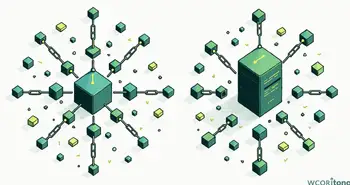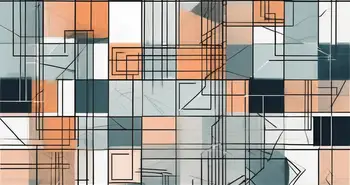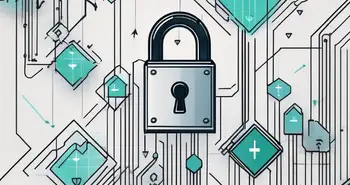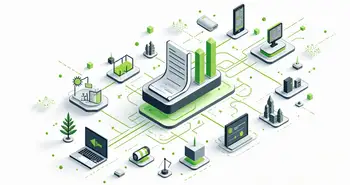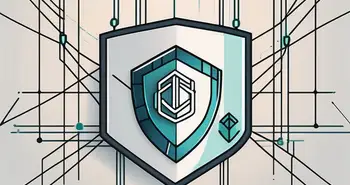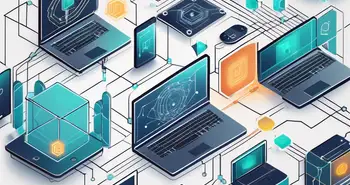What Are Blockchain Oracles and Why Are They Important?

In the rapidly evolving world of blockchain technology, there is a term that often surfaces in discussions about smart contracts and decentralized applications: blockchain oracles. These oracles serve as crucial bridges between the blockchain and the outside world, enabling smart contracts to interact with real-world data. In this article, we will explore what blockchain oracles are, their workings, their importance, and the challenges they face.
Introduction to Blockchain Oracles
To fully understand blockchain oracles, it's essential to first grasp their fundamental role in the blockchain ecosystem. They are entities that provide external data to smart contracts on a blockchain, allowing these contracts to execute based on information from outside the blockchain. This capability is vital for the practical application of blockchain technology, as it enables smart contracts to interact with the real world in a meaningful way.
Definition of Blockchain Oracles
A blockchain oracle is essentially a third-party service that supplies smart contracts with real-time data from external sources. This could include anything from price feeds of cryptocurrencies to weather information or even data from IoT devices. By bridging the information gap, oracles facilitate the execution of smart contracts that would otherwise be limited by their inability to access real-world data. The reliance on oracles highlights the importance of trust and accuracy in the data provided, as any discrepancies can lead to significant errors in contract execution.
Types of Blockchain Oracles
There are several types of blockchain oracles, each serving a distinct purpose. Some of the most notable include:
- Software Oracles: These oracles fetch data from online sources, such as APIs and websites. They are commonly used to retrieve asset prices or news feeds, ensuring that smart contracts can respond to market fluctuations in real time.
- Hardware Oracles: These involve physical devices, like sensors or IoT devices, which gather data from the environment. An example is smart contracts that depend on real-time weather conditions to trigger payments, such as insurance payouts for crop damage due to adverse weather.
- Inbound Oracles: This type sends data to the blockchain from the outside world, supplying external information to smart contracts. They are crucial for applications in finance, where accurate market data is essential for executing trades.
- Outbound Oracles: These oracles communicate the outcomes of blockchain contracts to external systems or platforms, enabling seamless integration between blockchain applications and traditional systems.
Each type of oracle plays a crucial role in ensuring that smart contracts can access the necessary data to function effectively. The reliability of these oracles is paramount, as they act as a bridge between the deterministic world of blockchain and the unpredictable nature of real-world events. Moreover, the evolution of decentralized oracles has introduced a new layer of security and trust, where multiple data sources can be aggregated to minimize the risk of manipulation or errors. This innovation is paving the way for more complex and robust decentralized applications (dApps) that can operate autonomously and efficiently in various industries, from finance to supply chain management.
How Blockchain Oracles Work
The functionality of blockchain oracles revolves around the data retrieval process and their integration with smart contracts. Understanding this process can demystify how they operate.
Data Retrieval Process
The process begins when a smart contract requests specific information. For instance, a decentralized finance (DeFi) application might need the current price of an asset to execute a trade. The oracle steps in, retrieving this data from a reliable external source. This step is critical because the accuracy of the data significantly influences smart contract execution. Various types of oracles exist, including software oracles that pull data from online sources, hardware oracles that gather information from the physical world, and consensus oracles that aggregate data from multiple sources to ensure reliability. This diversity allows developers to choose the most suitable oracle type for their specific use case, enhancing the robustness of their applications.
Integration with Smart Contracts
Once the oracle retrieves the data, it submits this information to the smart contract on the blockchain. The smart contract then evaluates the data against its programmed conditions. If conditions are met, the contracts automatically execute the agreed-upon actions, such as transferring tokens or executing trades. This seamless integration ensures that blockchain applications can operate effectively and in real-time, much like traditional contracts but with added security and transparency. Furthermore, the use of oracles introduces a layer of trust in the blockchain ecosystem, as they act as intermediaries that validate and verify the data before it reaches the smart contract. This is particularly important in scenarios where the stakes are high, such as in insurance claims or supply chain management, where the accuracy of external data can determine the outcome of significant financial transactions.
Need reliable, real-time data for your smart contracts? Morpher Oracle delivers decentralized, tamper-proof market feeds. Start integrating now!
Importance of Blockchain Oracles
The significance of blockchain oracles cannot be overstated. They enhance the functionality of smart contracts and bring real-world applications into the blockchain space.
![]()
Enhancing Smart Contract Functionality
Without oracles, smart contracts would be confined to the data available on the blockchain itself, limiting their applicability. By providing access to external data, oracles enhance the effectiveness and usability of smart contracts. For example, in insurance, smart contracts relying on weather data from oracles can automatically issue claims based on weather conditions, streamlining the entire process. Furthermore, oracles can also facilitate complex financial instruments, such as derivatives, by supplying real-time market data, which allows for more accurate pricing and risk assessment. This capability not only increases the reliability of financial products but also encourages greater participation from investors who seek transparency and efficiency in their transactions.
Real-World Applications
Blockchain oracles have ushered in a new era of possibilities across various sectors. Industries such as finance, supply chain, and healthcare benefit from their capabilities. In finance, oracles facilitate secure and real-time trading. They provide timely updates on shipment conditions and locations, ensuring transparency and trust among parties in supply chains. From the healthcare angle, they can deliver patient data from wearable devices to relevant smart contracts, optimizing patient care. Additionally, the integration of oracles in the energy sector is gaining traction, where they can be used to track energy consumption and production data. This allows for more efficient energy trading and management, enabling decentralized energy markets where consumers can buy and sell energy based on real-time data. The potential for oracles to bridge the gap between digital assets and the physical world is not just a technological advancement; it represents a fundamental shift in how industries can operate, making processes more efficient and data-driven.
Challenges and Future of Blockchain Oracles
Despite their importance, blockchain oracles are not without challenges. Issues such as security and reliability pose significant hurdles that the industry must address.
Security Concerns
One of the primary challenges facing blockchain oracles is security. Since oracles serve as gateways between the blockchain and external data sources, they can become potential targets for attacks. If an oracle is compromised, it could lead to the manipulation of data fed into smart contracts, resulting in severe financial implications. Therefore, developing robust mechanisms to ensure the integrity and security of oracle data is paramount.
Potential Developments and Innovations
The future of blockchain oracles looks promising, with ongoing innovations aimed at enhancing their reliability and security. Solutions such as decentralized oracles, which aggregate data from multiple sources, are being developed to minimize the risks associated with single points of failure. These innovations are key to broadening the adoption of smart contracts across various sectors.
In conclusion, as the blockchain landscape continues to evolve, the role of oracles will remain pivotal. They not only bridge the gap between the blockchain and the real world but also enable a vast array of practical applications. Their continuing development will dictate the efficiency and reliability of smart contracts and will be essential for the growth of decentralized technologies. As we move forward, understanding and addressing the challenges faced by oracles will be vital for maximizing their potential and integrating them securely into our digital futures.
Experience the Future of Trading with Morpher
As we've explored the critical role of blockchain oracles in enhancing smart contract functionality and enabling real-world applications, it's clear that reliable data sources are the backbone of decentralized finance. Morpher understands this necessity and has developed its own Morpher Oracle to provide real-time, decentralized market data to smart contracts and prediction markets. With Morpher's trading platform, you can engage in commission-free trading across a variety of assets, enjoying the benefits of fractional trading to diversify your portfolio. If you're looking to leverage accurate, real-time price feeds for your DeFi applications, discover now how Morpher Oracle can revolutionize your trading experience.

Disclaimer: All investments involve risk, and the past performance of a security, industry, sector, market, financial product, trading strategy, or individual’s trading does not guarantee future results or returns. Investors are fully responsible for any investment decisions they make. Such decisions should be based solely on an evaluation of their financial circumstances, investment objectives, risk tolerance, and liquidity needs. This post does not constitute investment advice.

Painless trading for everyone
Hundreds of markets all in one place - Apple, Bitcoin, Gold, Watches, NFTs, Sneakers and so much more.

Painless trading for everyone
Hundreds of markets all in one place - Apple, Bitcoin, Gold, Watches, NFTs, Sneakers and so much more.

